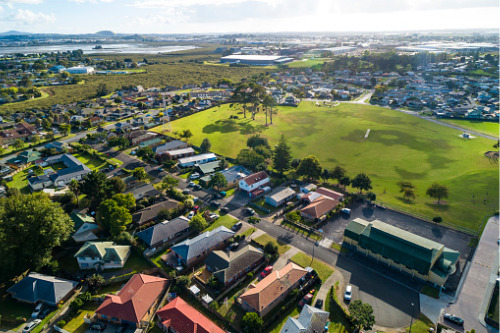However, one main centre has seen less growth

Economists have been seeing signs that the property market is slowing down and New Zealand is approaching the end of the current property cycle. With many investors worried that their property’s value will take a dip soon, Homes.co.nz has provided some context on what’s to come.
The latest homes.co.nz Monthly Property Update, generated using the website’s August 2021 HomesEstimates, provides an up-to-date perspective on house values around New Zealand by median values from month to month. The HomesEstimates is calculated for almost every home in New Zealand by an algorithm that identifies the relationship between sales prices and property features.
The data team at Homes.co.nz, led by chief data scientist Tom Lintern, reported that more than 47% of homes across New Zealand had seen their value increase more than 50% above the purchase price. What is even more staggering is that one in three properties has doubled in value since they were purchased, while one in 10 properties (11%) has even tripled in value.
Infometrics principal economist Brad Olsen pointed to capital gains as one of the factors contributing to stronger spending levels.
“Rising house prices are certainly ensuring that households remain upbeat about the future, with their main asset having increased significantly in value,” Olsen said.
“With a third of houses having doubled in value since they were bought, there’s a strong foundation to support household confidence, which in turn is keeping spending levels high in the economy – a stronger economic position generally means stronger spending intentions.”
Read more: New Zealand housing market hits another record
In some of the main centres, the data team found a similar trend after a period of sustained growth. For instance, over half of Wellington properties have now doubled in value (and over 40% in Hamilton, Tauranga, and Dunedin).
The median HomesEstimate has surpassed $600,000 in Christchurch for the first time, up over 30% in the last 12 months. However, it has seen less growth compared to other main centres – with only 8.7% of properties having doubled in value since they were purchased, highlighting “the less frenzied housing market in that region.”
Olsen said the recent growth in capital gains – along with wealth generation for existing homeowners – had resulted in fewer properties available for sale, adding further price pressures.
“The high levels of capital gains for a large number of houses also helps explain why there are fewer houses on the market – usually, with these levels of capital gains, more people would sell and try to realise that gain (and turn it into cash),” he said.
“But with the bright-line test extended to five years a few years back, these capital gains figures also highlight the large amounts of tax people stand to owe if they do sell within the bright-line test timeframe – meaning people will likely want to sit on their investment until the bright-line period has passed.”



